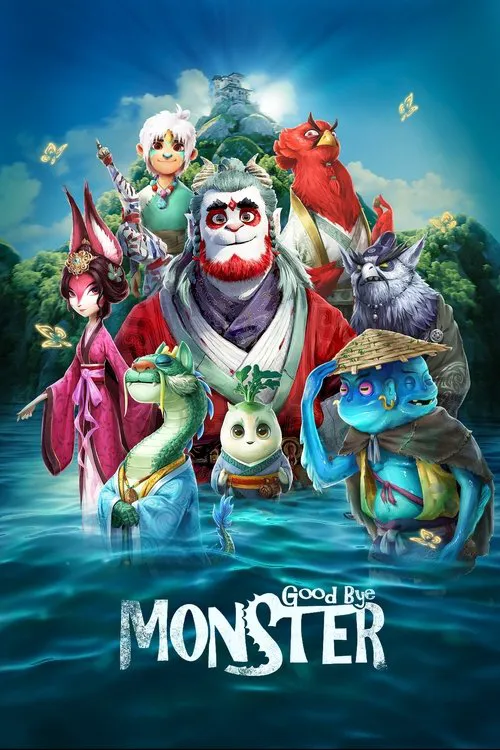Goodbye Monster

Plot
Goodbye Monster tells the story of Bai Ze, a gifted healer of the Kunlun people, whose extraordinary skills and abilities in healing are rivaled only by his unbridled passion for restoring balance to the world. Hei Ling's terminal illness serves as the catalyst for a chain of events that will change Bai Ze's life forever. Consumed by the guilt of being powerless to save his friend, Bai Ze makes a rash decision that has unforeseen and far-reaching consequences: he accidentally destroys an entire island in an attempt to heal Hei Ling. Banished by his brethren, Bai Ze wanders aimlessly, struggling to come to terms with his failure and his unwavering desire to make amends. The weight of his wrongdoing threatens to consume him, forcing him to confront the harsh realities of his own mortality. This poignant reflection serves as a poignant reminder of the devastating consequences of his actions, which not only resulted in the destruction of the island but also left a trail of suffering and heartache among the people who depended on him. Seven years pass, and Bai Ze reappears on the island he once so callously destroyed. His return is met with a mix of skepticism and trepidation from the island's inhabitants. Despite his intentions, the people of the island are wary of his motives, and their caution is palpable in their interactions with the once-revered healer. Bai Ze understands their apprehension and does his best to prove himself by utilizing his unique skills to heal the wounds he once inflicted. As he navigates the complex web of relationships on the island, Bai Ze finds himself drawn to a young woman named Xiao Qi. Her innocence, compassion, and selflessness serve as a poignant reminder of the values that Bai Ze once held dear. Their blossoming romance is a welcome respite from the darkness that has plagued Bai Ze for years. Xiao Qi's influence, however, also exposes Bai Ze to the harsh realities of life outside of the Kunlun community, forcing him to confront the fact that his actions have far-reaching consequences. Throughout his journey, Bai Ze grapples with the nature of redemption, and whether or not it is possible to make amends for past mistakes. This inner turmoil manifests in his interactions with the island's inhabitants, who seem to be waiting for him to prove himself. As he delves deeper into the mysteries of his past and his relationship with Xiao Qi evolves, Bai Ze begins to see the world through different eyes, his perceptions and perspectives shifting as he grapples with the complexities of human connection. As tensions on the island rise, Bai Ze finds himself at the center of a brewing storm. The return of his estranged friend, Hei Ling, serves as a poignant reminder of the circumstances that led to his downfall. Hei Ling's fragile health highlights the devastating consequences of Bai Ze's actions and serves as a powerful catalyst for the events that unfold. Goodbye Monster is a poignant exploration of the human condition, delving into themes of guilt, redemption, and the complexities of human connection. The film's narrative is a nuanced examination of the consequences of our actions and the power of forgiveness in healing the wounds of the past. Through Bai Ze's journey, the audience is invited to reflect on the nature of redemption and the transformative power of love, compassion, and self-sacrifice. As the story unfolds, the audience is taken on a poignant rollercoaster ride of emotions, grappling with the complexities of forgiveness and the redemptive power of love. Ultimately, Goodbye Monster emerges as a deeply moving and thought-provoking exploration of the human experience, leaving viewers with a deeper understanding of the complexities of the human heart and the transformative power of love and forgiveness.
Reviews
Leah
A lingering question after watching is the true nature of light in the film's world, particularly the unexplained origin of Bai Ze's light. On the other hand, the film's concept strongly suggested an inner or spiritual journey.
Lorenzo
The inability to have a second child and the inherent risk of favoritism are subtly explored through the metaphor of a worm-ridden apple, highlighting the psychological imbalance within the family dynamics.
Jessica
Just saw an early screening and caught a joke: the radish is called "Tang Ni" (Mandarin for sugar paste), is that a pun on Robert Downey Jr...?
Recommendations




